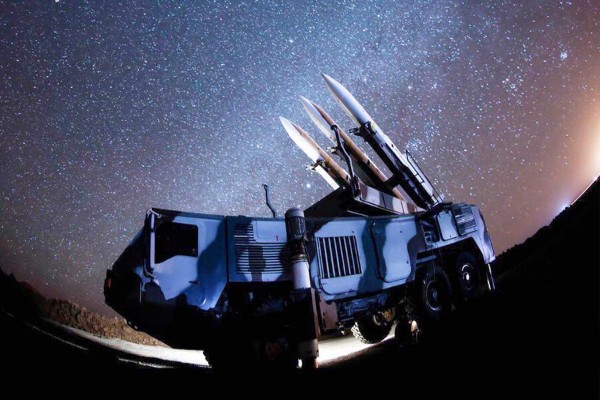Former diplomat Mohammad Masjed-Jamei says sheikhdoms were seeking to wage war against Iran, but Iran’s downing of the US spy drone kept them from pursuing this objective.
But what happened that such a wave of events was triggered for our country? Is the Trumpism current leading developments in the Middle East?
Masjed-Jamei, a former ambassador to Morocco and Vatican, has, in an interview with Khabar Online, elaborated on those questions and several other related issues. The full text of the interview follows.
Khabar Online: How did the Trumpism current come into being?
Expert: More than 80% of evangelicals and the majority of white nationalists in the United States voted for Trump. They were those who did not approve of Obama as well as his policies and ideas. Trump emerged from such religious, nationalistic, and somehow racist tendencies. He himself has a similar character as well. Moreover, they have committed themselves to opposing and even wrecking Obama’s policies. What is more, Trump is a businessman and a business-like individual. He lacks academic education and diplomatic experience. To him, it is more important to keep evangelicals busy and satisfied than make strategic calculations, and that is the reason behind his current popularity.
Khabar Online: How is Trump’s regional policy?
Expert: This policy has three planks: 1. Helping Israel within the framework of ideas and beliefs of evangelicals and white American nationalists 2. Maintaining an active relationship with Saudi Arabia and Persian Gulf sheikhdoms 3. Opposing Iran and limiting the country. Of course, these three planks are related and associated with one another.
Khabar Online: What is his policy towards Iran?
Expert: At the beginning, the most important factor was Trump’s opposition to Obama’s policy toward Iran and the Middle East.
Another point that Trump mentioned time and again was his bitter memories of cases where, in his view, Iranians had humiliated Americans. The last one of those cases was the capture of American sailors and the broadcast of their video showing them crying. Such events were not tolerable for a nationalistic individual like him.
Moreover, he tried to adopt an active regional policy vis-à-vis his main ally, Israel, and his cronies such as Saudi Arabia and other sheikhdoms. He was trying to remove their fear of Iran by making them feel Washington was supporting them.
Another key contributor was his associates each of which were against Iran one way or another. In the closest circle of his associates, there was no one who would know and have a balanced policy toward Iran. Those who somehow had such tendencies such as the defense secretary and the secretary of state were fired.
And finally, Tehran lacks academic education. He does not know Iran, its history and its culture. Such a lack of knowledge wouldn’t be problematic under normal circumstances, but such knowledge is needed when a relationship becomes critical in the true sense of the word. Furthermore, He has a confused and disorganized mind. Of course, all those who make decisions about Iran have minds like this. Nevertheless, it seems that tangible changes have recently taken place in that regard.
Khabar Online: Why did those changes occur?
Expert: These changes, or let’s say developments, have different reasons. The reality is that under the circumstances, the Americans are willing to threaten to intervene in other countries militarily as long as no war will break out. The second point is that after the situation became critical, especially after Iran’s downing of the US drone, most countries and independent personalities warned about the outbreak of an all-out and destructive war that would engulf many countries. Given Iran’s self-restraint and the fact that Iran will never initiate a war, most criticism was directly or indirectly directed toward the US.
The third point is related to sheikhdoms. The United Arab Emirates (UAE) was the most ardent advocate of war. As remarks by UAE authorities suggested, they not only wanted a destructive war, but sought to disintegrate Iran and change its religious denomination in the long run. Apparently, their experiences over the past two months have brought them to the conclusion that the military option is not the solution, a point which was straightforwardly announced by Anwar Gargash after the downing of the American unmanned aerial vehicle. Gargash is currently the spokesperson for the hawkish and interventionist anti-Iran sheikhdoms.
Khabar Online: How will the status of relations between China, Russia and Iran be? Will they stand by Iran’s side?
Expert: Russia stood firm by Syria and Venezuela, but is unlikely to stand by Iran that firmly. This is related to our status as a country, not Moscow’s policy. The reality is that Iran is a country which is alone and, in a sense, does not take allies. This has historical, cultural, religious, social and identity-related reasons, and is not that much related to the situation in recent decades. This does not mean that we are backing Russia. And it is undeniable that the Russians are seeking their own interests and have dealt serious blows to us over the past two centuries. However, it is necessary to understand issues precisely, scientifically and with neutrality. We should also take a stance in accordance with our interests. We need neutrality when understanding issues, not neutrality in taking positions.
The same goes for China, which has adopted a conservative policy and basically owes its eye-catching development to this very policy. Iran is an important and exceptional country from different points of view, and both countries will definitely take this into consideration in their future programs. However, they are unlikely to stand by our side in critical and dangerous times.
